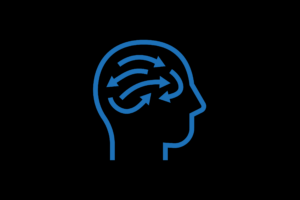Everybody has days where they feel sad or fed-up; it is normal for our moods to change according to what is happening in our lives. Sometimes you might feel low for a day or two, but this doesn’t necessarily mean you have depression.
Depression is the name used to describe a low mood that is long-lasting: when you feel down for weeks or months. People with depression often feel bad about themselves, lose interest in things they used to enjoy, and don’t have as much energy as they normally would. It is not possible to just “snap out of it” or “cheer up.” The good news though is that depression can be treated, so it is always a good idea to speak to your doctor if you think you might be experiencing depression.
What can cause depression?
There are many things that can increase the risk of someone being depressed, but everybody is unique and can respond differently to different events or situations. Sometimes there might not even be an obvious cause. Examples of common causes include: upsetting or life changing events like losing someone you care about, experiencing a period of stress, and loneliness.
Some common signs of depression
- Feeling sad and upset for a period of weeks or months
- Feeling more grumpy than normal
- Feeling numb, or not caring about things you normally would (including yourself)
- Struggling to concentrate
- Not wanting to do things you’d normally find fun
- Sleeping more or less than you usually do
- Eating more or less than you usually do
- Feeling less confident, or not liking yourself
It is important to note that depression may look similar to burnout, but is different (and can occur at the same time). You can learn about burnout here.
As an autistic person, how can you look after yourself to reduce the risk of burnout or becoming depressed?
The main thing anyone can do is be kind to themselves! As an autistic person, this may mean doing things in ways that suit you, rather than trying to be like everyone else. It is also really useful to understand your own limits and know that it is okay to politely say “no” to requests or invitations from others – especially when you know you’re unlikely to have enough energy to match the situation.
The following links will give advice on how you can look after yourself:



